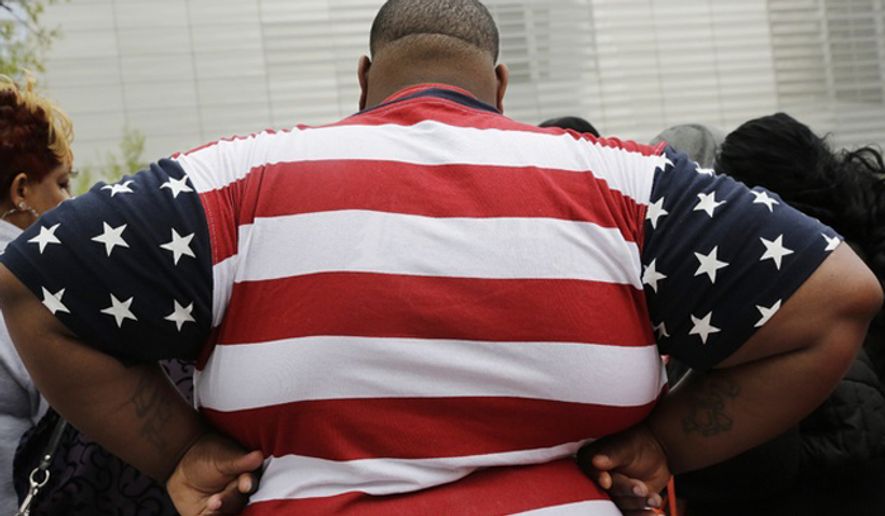There U.S. Army’s recruitment pool keeps getting bigger — around the waistline — a reality that is forcing its top brass to consider relaxing fitness standards for future “cyber warriors.”
Maj. Gen. Allen Batschelet, commanding general for the U.S. Army Recruiting Command at Fort Knox, Ky., recently spoke of the challenges recruiters face in a nation where 70 percent of young people between the ages of 17 and 24 are ineligible to serve.
“Today, we need cyber warriors, so we’re starting to recruit for Army Cyber,” Gen. Batschelet told the Florida Times-Union Oct. 23. “One of the things we’re considering is that your [mission] as a cyber warrior is different.; Maybe you’re not the Ranger who can do 100 pushups, 100 sit-ups and run the 2-mile inside of 10 minutes, but you can crack a data system of an enemy. But you’re physically fit, you’re a healthy person and maintain your professional appearance, but we don’t make you have the same physical standards as someone who’s in the Ranger Battalion,” he added.
The officer told the paper that successfully implementing such a decision would require the Army to undergo a cultural change that “is kind of a different definition of quality.”
U.S. Army male soldiers between the ages of 17-21 are currently expected to do a minimum of 35 pushups, 47 situps, and run two miles in 16:36 to pass their Army Physical Fitness Test (APFT).
The general did not specify what the new minimum requirements would be for soldiers assigned to Army Cyber.
“I would say it’s a modernizing, or defining in a more precise way, what is considered quality for soldiers,” he told The Florida Times-Union of changes that may eventually affect soldiers whose military occupational specialty concerns cybersecurity.
Data from a 2009 - 2010 National Health and Nutrition Examination Survey found that one-third of children and adolescents between the ages of 6 and 19 are now considered obese, the National Institutes of Health (NIH) reported. That same study concluded that 1 in 3 adults are considered obese.
• Douglas Ernst can be reached at dernst@washingtontimes.com.




Please read our comment policy before commenting.